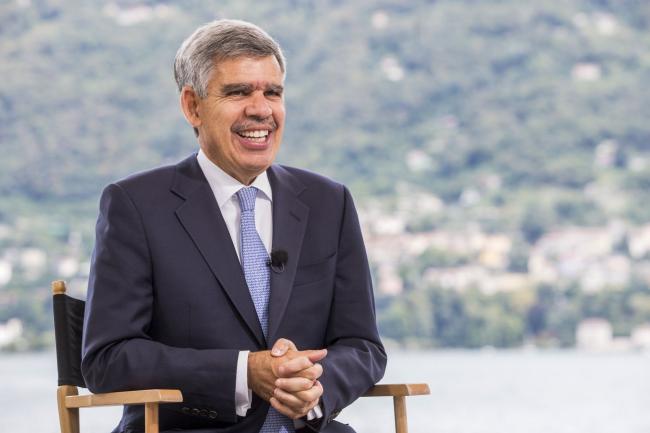(Bloomberg) -- A US recession is not a “done deal” thanks to a relatively resilient labor and credit market, while Wall Street has already priced in a high degree of interest-rate risk, according to Mohamed El-Erian, chief economic adviser at Allianz (ETR:ALVG) SE.
While the Federal Reserve faces an even greater challenge than the days of Paul Volcker, El-Erian says the US central bank may yet avert an economic downturn in its inflation-fighting campaign -- though the policy challenge looks enormous.
“The risk of a US recession is uncomfortably high. I don’t think it’s a done deal. I don’t think it’s 100%,” the Gramercy Funds chairman told Bloomberg Television’s The Open on Tuesday. “The Fed can hopefully still find a way around this.”
Volcker is credited with bringing inflation under control in the early 1980s by ratcheting interest rates up to around 20%. Chair Jerome Powell, this time around, has to consider disruptions to the financial system as the Fed attempts to “borrow credibility” from the Volcker-led Fed to justify not being as aggressive with policy decisions, said El-Erian, who is also president of Queens College, Cambridge and a Bloomberg Opinion columnist.
“The problem that he has that Volcker did not have is a tri-lemma. Volcker dealt with growth and inflation. Chair Powell has on top of that financial stability,” he said. If the Fed pivots away from its current hawkish policy, “it will be because of financial stability. It’s not going to be because they’ve decided to not look at inflation anymore.”
“The risk here is that we get a quagmire of stagflation as we try and lower the financial stability risk,” El-Erian said. “That is what happens when you’re late -- you have fewer degrees of freedom.”
Earlier in the week, El-Erian noted that the speed at which the Fed has hiked interest rates could cause both economic and financial damage. The Fed has raised its policy rate five times since March, and expectations are for a fourth straight 75 basis-point move next month, with investors betting on either the same again or a smaller increase in December.
“The labor market is still strong, but it requires a Fed that has a lot more skill and a lot more luck because it no longer has time,” El-Erian said.
©2022 Bloomberg L.P.

